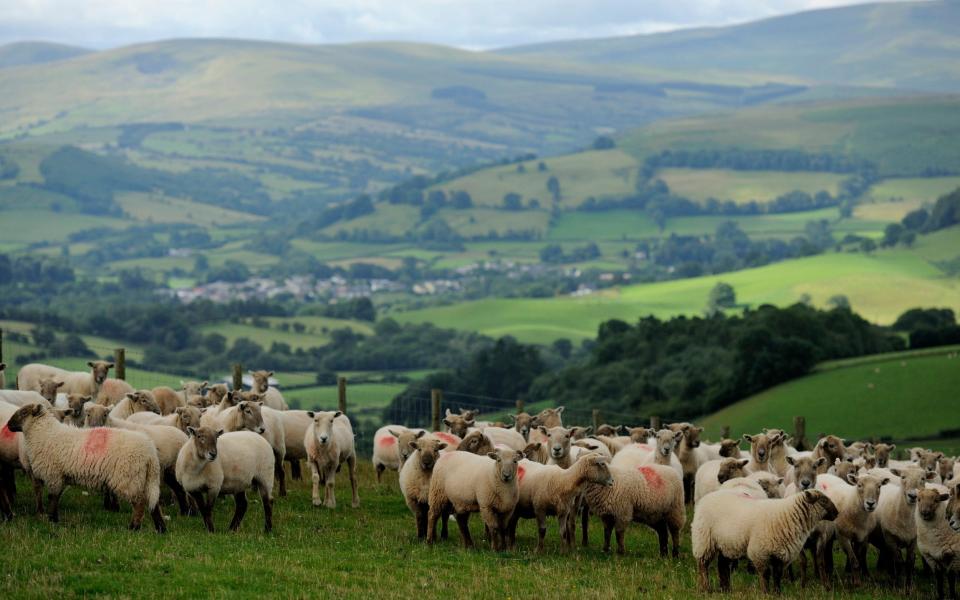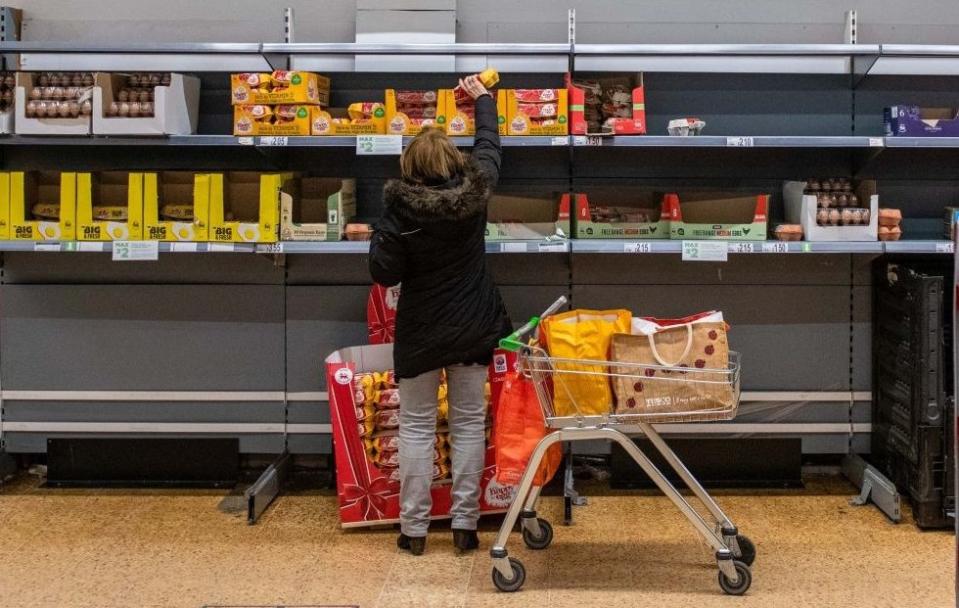Aldi and Lidl spend big in battle for ‘hearts and minds’ of British farmers

Are Aldi and Lidl the saviours of British farmers? The German discounters certainly want shoppers to think so.
As tensions between traditional supermarkets and suppliers hit boiling point, Aldi and Lidl are positioning themselves as the new face of British produce.
“The farmers and producers that supply us, some of which have been with us for decades, are paramount to the success of our business,” Lidl GB’s chief executive Ryan McDonnell said last week, as the grocer announced that it would be spending £2bn more than planned on buying British in the coming years.
Aldi, meanwhile, has pledged to spend an extra £3.5bn a year with UK suppliers by the end of 2025.
The timing of Lidl’s announcement has raised eyebrows. Just days earlier, Tesco chairman John Allan put noses out of joint across the UK food industry after accusing some unnamed suppliers of profiteering live on the BBC.
Allan’s comments were likely aimed at the multinational packaged goods giants, rather than growers, but the heavy-handed language incensed the UK’s farming community.
Sensing an opportunity, the discounters have been keen to send a message: while supermarkets like Tesco are squeezing farmers on prices, Aldi and Lidl are looking out for Britain’s food and drink producers.
Clive Black, an analyst at Shore Capital, says both the German discounters have been “very switched on in trying to align with domestic supply as much as possible”.
“They know that, as German discounters, they need to win over certain hearts and minds in the UK. And, really, the supply chain understands the scale of these companies and increasingly needs Aldi and Lidl.”
The £2bn extra spend that Lidl announced this week is the latest in a series of headline-grabbing commitments. The chain has said it will now spend £17bn on British food between 2020 and 2025.
Lidl has long played up its British credentials – the German company notably struck a deal to sponsor the England men's football team in 2015, despite the old sporting rivalry between the two countries.
More recently, a TV advertising campaign declared that the discounter is “Big on British” and stated that its Cumberland sausages and gravy are "as British as saluting a magpie".
Yet despite the public love bombing, farmers complain Lidl is just as prone to hardball tactics as its British rivals.
Lidl ranked the worst of any retailer in an annual survey of food and drink suppliers, with less than a third (32.5pc) saying the company complied with the Groceries Supply Code of Practice, which dictates how retailers should treat food and drink suppliers, “consistently well”. 52pc said it complied “mostly consistently” well, while 14.18pc said it “rarely” complied.
In December, it emerged that Lidl was facing a £2.6m legal challenge from a former fruit & veg supplier, Proctor & Associates. The company claimed Lidl had breached its contract and violated the Groceries Code.
Proctor & Associates alleged the supermarket had cut the price of its products unfairly and poached its suppliers. The case is ongoing.
The Groceries Code came into force in 2013 and was designed to ensure retailers treat their suppliers of food and drink fairly. Terms include making sure suppliers are paid in good time, and requiring retailers to have “genuine commercial reasons” before discontinuing products.
The Groceries Code is overseen by an adjudicator but many farmers are reluctant to complain for fear of damaging major relationships that can make-or-break a business.
“What I’m concerned about is that most farmers and growers are incredibly nervous about speaking up,” says Minette Batters, president of the National Farmers’ Union. “Because they know that the dangers of having their products delisted are enormous.”
Interestingly, Aldi won the top spot in suppliers’ eyes. 98pc believed it followed the Groceries Code either “consistently" or “mostly” well. Those who work with the chain say Aldi is generally transparent and direct, even in tough negotiations.
Both the discounters are “very much up front” when it comes to pricing talks, one farming source says.
The approach is often “if you don’t give this price you are out”. Lidl is particularly transactional and intransigent, the source claims.
“It’s a simple brutality rather than a sophisticated brutality,” they say, contrasting the discounters to other major supermarkets.
Still, all grocers are tough negotiators when it comes to pricing. Talks are increasingly testy as the cost-of-living crisis prompts a price war among supermarkets. Chains are desperate to keep prices as low as possible for fear of losing customers to rivals.
The NFU’s Batters says that “without a doubt” relationships between suppliers and supermarkets are becoming more strained.
“There’s some really challenging behaviour out there,” he says.
It is not just farmers rubbing up against the major stores. Tensions with leading brands have recently spilled into the public sphere: Warburtons and Mornflake have both complained about being withdrawn from the shelves at Waitrose as the supermarket slims down the range on its shelves. Both Heinz and Colgate were pulled from Tesco temporarily in 2022 in a row over pricing.
However, whereas big brands have the financial wherewithal to withstand these disputes, farmers complain that aggressive supermarket price demands are piling pressure on businesses already struggling to keep afloat.
The price of British pork is currently lower than the cost of production, leaving the UK’s pig breeding herd at its lowest size in 20 years.
Egg farmers, too, have been exiting the industry after struggling to get supermarkets to agree to price increases. One Welsh farmer went viral late last year after publishing a video in which he said egg prices were a “far bigger factor” in shortages than bird flu.

Small apple growers who can store their produce for up to a year have been left unsure on what price they will get for that fruit, making it difficult to plan and plant their next crop.
“They just haven’t been able to get a price,” Batters says.
“What we're saying is everybody has got to share some of the pain, otherwise, we're gonna see further contraction.”
The Lea Valley Growers Association, whose members produce about three-quarters of Britain's cucumber and sweet pepper crop, says more supermarkets are “turning to local farmers and growers in order to secure their supply chains.”
“However, they will find that there simply are not as many British producers left and those who are, prefer to deal with retailers who have supported them through this crisis,” says Lea Valley’s secretary Lee Stiles.
Whatever happens, Lidl and Aldi are increasingly important customers for farmers and other food and drink producers. Sales at both companies are up more than 20pc on last year, vastly outstripping growth at the likes of Tesco, Sainsbury’s, Asda and Morrisons.
Aldi, which last year became Britain’s fourth largest supermarket and is a long-time sponsor of Great Britain’s Olympic team, says that over three quarters of its sales are products from British suppliers. Lidl sources two thirds of its produce from the UK and claims to be the market leader in sales of fresh British pork by volume.
Lidl declined to comment.

 Yahoo News
Yahoo News 